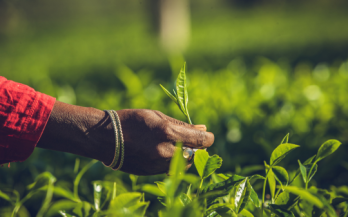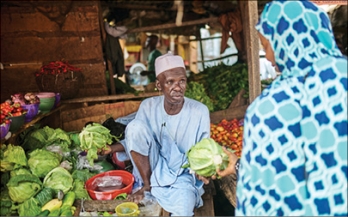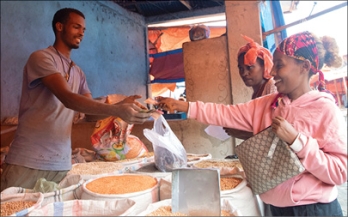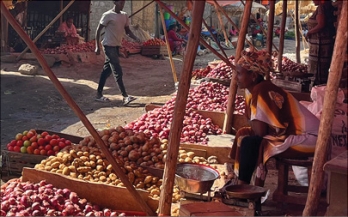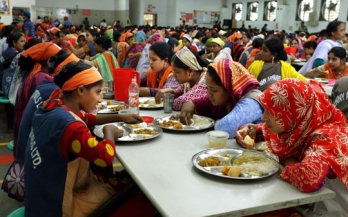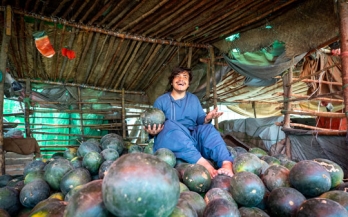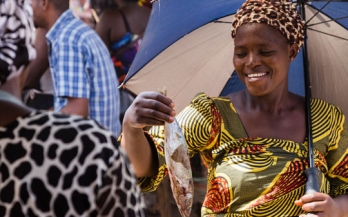A strategy to catalyse a global food systems transformation for people, planet and prosperity using cities as entry points.
As part of EatSafe's effort to evaluate the impacts of food safety behavior change interventions, this report summarized food safety behaviors and behavior drivers across four food safety macro-indices, assessed via structured surveys of vendors and consumers in Nigeria.
As part of EatSafe's effort to evaluate the impacts of food safety behavior change interventions, this report summarized food safety behaviors and behavior drivers across four food safety macro-indices, assessed via structured surveys of vendors and consumers in Hawassa, Ethiopia.
EatSafe collected samples of three nutritious commodities to assess the relative exposure and risk of foodborne illness from consuming tomatoes, kale, and lettuce sold in traditional food markets in Southern Ethiopia.
Le projet de recherche sur les modèles commerciaux GAIN vise à définir des modèles commerciaux prometteurs pour rendre les aliments nutritifs plus accessibles aux consommateurs à faible revenu.
The scope of this review focused on traditional markets, which provide millions of people with nutrient-rich commodities like animal-source foods and fresh produce. However, these same foods are the leading cause of foodborne disease globally. The research, based on insights from 11 literature reviews, revealed that there is a strong connection between food safety, nutrition, and health. To address these issues, a food systems approach is required.
GAIN undertook an assessment of existing workforce nutrition-related policies to identify opportunities for improvement and generate insights into how policymakers and other policy stakeholders can contribute to healthier work environments. This briefing paper summarises the findings of a cross-cutting policy assessment for 12 countries across Africa, Asia, and Latin America.
But how do we assess current levels of integration and opportunities to strengthen it? That is where this baseline report comes in. It assesses integration and identifies opportunities to act jointly. The bad news in its results is that in general, climate and nutrition are not well connected.
The GAIN Business Model Research (BMR) Project, funded by the Netherlands Ministry of Foreign Affairs, aims to identify promising business models that can do just this.
Nigeria’s plan for the transformation of its food systems, presented after the landmark 2021 United Nations Food Systems Summit, is proof of its strong political dedication to implementing impactful changes in the country’s food systems.
